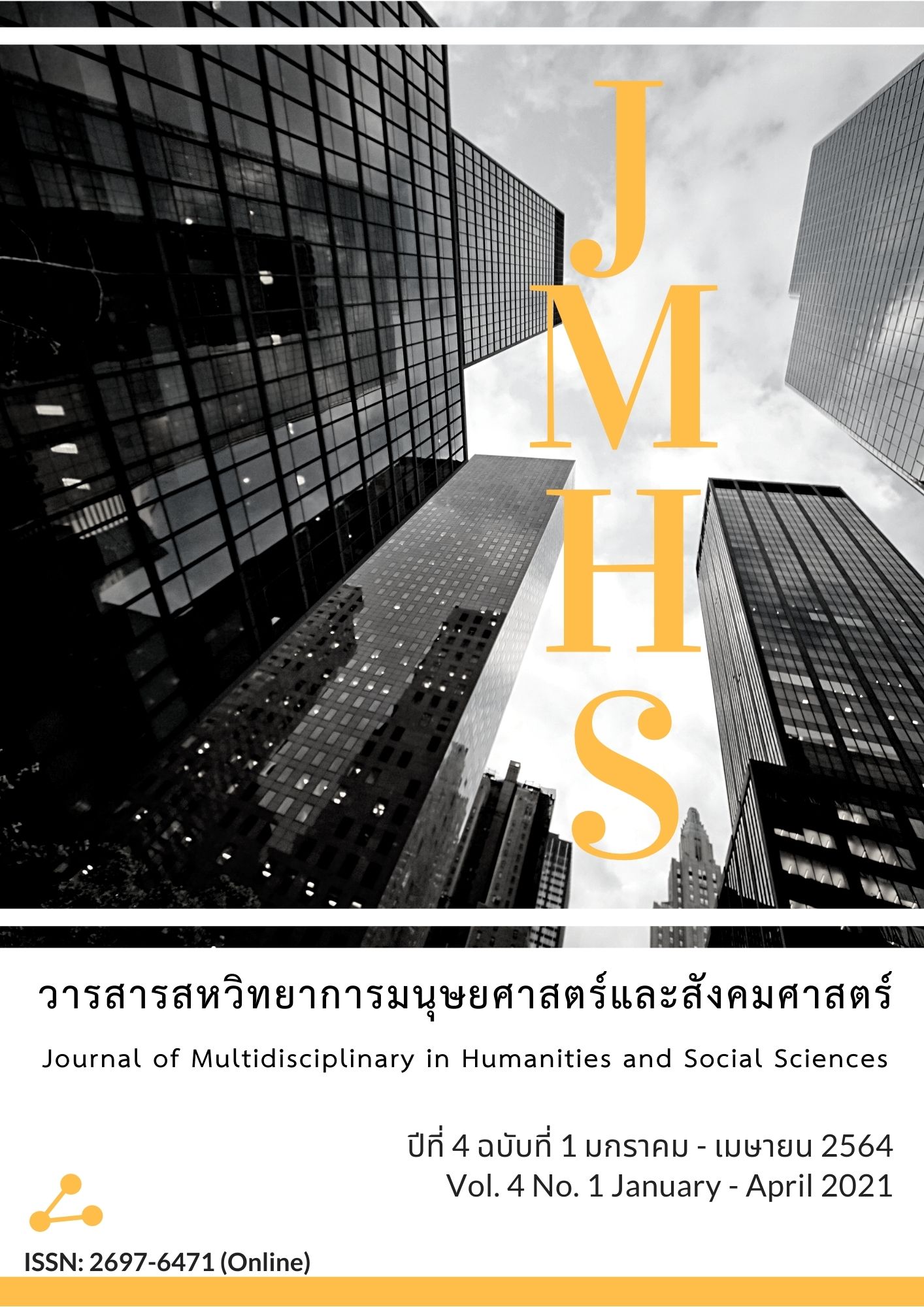A Model the Buddhist Well-being Support of the Sub-District People Training Center in the Southern Thailand
Main Article Content
Abstract
This Article aimed to study (1)evaluating and keeping in touch the project of the Buddhist well-being support of the Sub-District people training center in the Southern Thailand, (2) developing the knowledge and innovation of the Buddhist well-being support of the Sub-District people training center in the Southern Thailand, and (3) creating the co-operation and working mechanism of the Sub-District people training center in the Southern Thailand with a government sector, private sector and community. A research methodology was a survey research and participant observation research by 1. Content aspect, input factor aspect, process aspect and production aspect according to CIPP model, and 2. In-depth interview through individual and direct and participatory observations and small group meeting. The research results were found as follows:
- To evaluate the opinions of participants to activity of the project for content aspect or environmental atmosphere, input factor aspect, process aspect and production aspect, had the opinions to the activity of the project at the high level.
- To develop the knowledge about Dhamma for treatment the mental state of bedridden patients, to recover the art and culture of Lokocha music, to develop the local wisdom of Praekha weaving, to support the community right livelihood, hat knitting, Sangyod rice, dried fish curry and five-favour chilli paste, to create the innovation of Buddhist Well-being through simply Dhamma for treatment the mental state to fight with disease by using the music for helping to create the concentration for disease treatment, by the local food for health keeping.
- To have the working partners network for support the physical and mental health, to recover the arts and culture, to promote the right livelihood such as provincial Buddhism office, human security and social development office, community development office, Sub-District health promoting hospitals, municipalities, schools, housewife groups, and local people.
Article Details
Views and opinions appearing in the Journal it is the responsibility of the author of the article, and does not constitute the view and responsibility of the editorial team.
References
ณัฎฐพงษ์ สกุลเลี่ยว. (2553). จาก “ทุนนิยมโดยรัฐ” สู่ “รัฐทุนนิยม” ความเปลี่ยนแปลงทางเศรษฐกิจและสังคม กับการเมืองไทยภายหลังสงครามโลกครั้งที่ 2. วารสารมนุษยศาสตร์สังคมศาสตร์ มหาวิทยาลัยทักษิณ, 13(2), 58-78.
ธนิดา ผาติเสนะ และฐิติมา โพธิ์ชัย. (2562). การจัดการความรู้ภูมิปัญญาท้องถิ่นด้านอาหารสู่เศรษฐกิจสร้างสรรค์เพื่อเสริมสร้างสุขภาวะชุมชน และคุณค่าผู้สูงอายุในสังคมสูงวัย ตำบลมะเกลือใหม่ อำเภอสูงเนิน จังหวัดนครราชสีมา (รายงานผลการวิจัย). นครราชสีมา: มหาวิทยาลัยราชภัฏนครราชสีมา.
ประภัสสร ทองยินดี. (2558). แนวคิดการจัดการความรู้. สืบค้นเมื่อ 24 กุมภาพันธ์ 2563. จาก https://www.stou. ac.th/study/sumrit/2-59(500)/page3-2-59(500).html
พระครูสิริรัตนานุวัตร และคณะ. (2559). แนวคิดและกระบวนการเสริมสร้างสุขภาวะองค์รวมตามแนวพุทธจิตวิทยา (รายงานผลการวิจัย). อยุธยา: มหาวิทยาลัยมหาจุฬาลงกรณราชวิทยาลัย.
พระพรหมคุณาภรณ์ (ป.อ.ปยุตฺโต). (2549). สุขภาวะองค์รวมแนวพุทธ. (พิมพ์ครั้งที่ 35). กรุงเทพฯ: โรงพิมพ์ชุมนุมสหกรณ์การเกษตรแห่งประเทศไทย จำกัด.
ยอดเยี่ยม สอนเฉลิม. (2552). รายงานการประเมินโครงการโรงเรียนส่งเสริมพฤติกรรมสุขภาพตามแนวทางสุขบัญญัติแห่งชาติ โรงเรียนบ้านปากหว้า (รายงานผลการวิจัย). กรุงเทพฯ: สำนักงานกองทุนสนับสนุนการสร้างเสริมสุขภาพ (สสส.).
เรืองวิทย์ ลิ่มปนาท. (2537). บทบาทของรัฐในระบบทุนนิยมของไทย (พ.ศ. 2475-2500) (รายงานผลการวิจัย). กรุงเทพฯ: จุฬาลงกรณ์มหาวิทยาลัย.
ลาวัลย์ สุขยิ่ง. (2550). การจัดการความรู้ในองค์กร กรณีศึกษา: หน่วยงานธุรกิจ CDMA บริษัท กสท. โทรคมนาคม จำกัด (มหาชน). สืบค้นเมื่อ 20 กุมภาพันธ์ 2563. จาก Library1.nida.ac.th/termpaper5/hrd/25519226.pdg/
สมจันทร์ ศรีปรัชยานนท์. (2560). การจัดการทรัพยากรธรรมชาติกับการสร้างสุขภาวะชุมชนตามวิถีพุทธในจังหวัดลำปาง (รายงานผลการวิจัย). พระนครศรีอยุธยา: มหาวิทยาลัยมหาจุฬาลงกรณราชวิทยาลัย.
สุรเกียรติ อาชานุภาพ. (2550). การสร้างเสริมสุขภาพ: แนวคิด หลักการและบทเรียนของไทย. กรุงเทพฯ: สำนักพิมพ์หมอชาวบ้าน.
เสาวณิต จุลวงศ์. (2561). ทุนนิยมวิพากษ์ในวรรณกรรมไทย. วารสารวิชาการ คณะมนุษยศาสตร์และสังคมศาสตร์, 14(1), 9-52.
World Health Organization (WHO). (1998). WHO's Global Healthy Work Approach. Geneva: WHO.
Stufflebeam, D. L. (2003). The CIPP model for evaluation, in Kellaghan T., & Stuffelebeam, D. L. Netherland:
Kluwer Academic Publishers.
Kaplan, R. S., & Norton, D. P. (1996). The Balanced Scorecard: Translating Strategies into Action. Boston: Harvard Business School Press.
Kemm, J. & Close, A. (1995). Health Promotion Theory and Practice. London: Macmillan Press.


